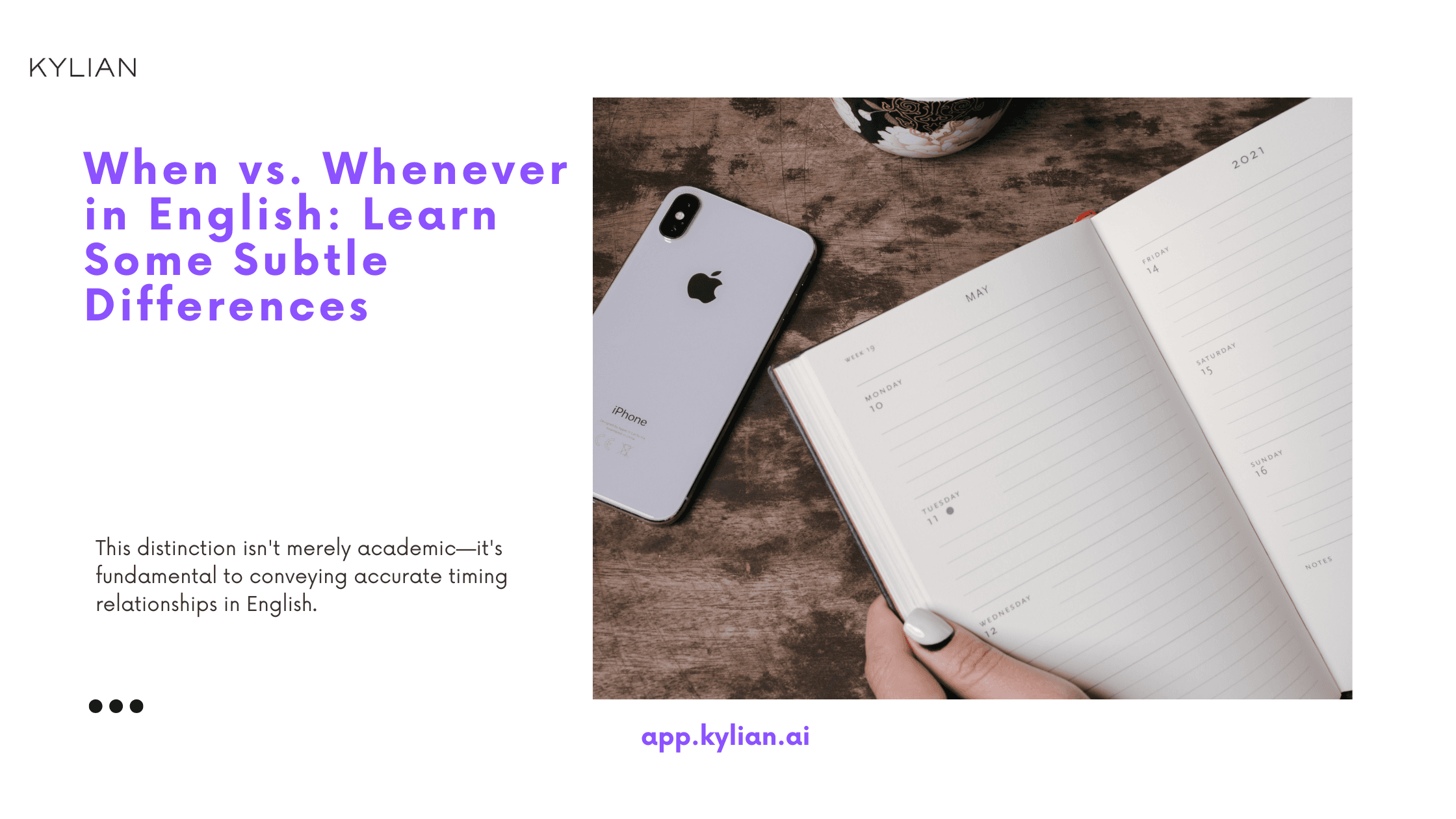

Mastering Chinese Birthday Wishes: The Complete Guide
Celebrating birthdays transcends cultural boundaries, yet the expressions and customs vary significantly across different societies. Understanding how to convey birthday wishes in Mandarin not only demonstrates cultural appreciation but also strengthens personal and professional relationships with Chinese speakers. This comprehensive guide will equip you with the linguistic tools and cultural context to properly celebrate birthdays in Chinese traditions.


25 Most Common Blended Words: Modern English Mashups
Language constantly evolves to accommodate our rapidly changing communication needs. Among the most fascinating linguistic innovations are blended words—those clever combinations that capture complex concepts in succinct, memorable terms. These linguistic mashups demonstrate English's remarkable adaptability, reflecting contemporary culture while providing efficient communication shortcuts.


Well-known or well known: When to hyphenate in English
The subtle difference between "well-known" and "well known" represents a fundamental aspect of English grammar that directly impacts clarity and professionalism in written communication. This distinction goes beyond mere punctuation—it reflects our understanding of how compound modifiers function within sentences and how their positioning influences their treatment. As language professionals and careful writers understand, the hyphenation rules for compound adjectives follow logical patterns that, once mastered, eliminate common errors that might otherwise undermine your credibility. This article examines the specific case of "well-known" versus "well known," providing definitive guidance on when to hyphenate and when to leave these terms unhyphenated.


How to Pronounce the World's Trickiest Place Names
Traveling internationally or discussing global destinations often leads to an inevitable language challenge: correctly pronouncing the names of places you're talking about. Navigating foreign place names can be tricky, especially when spelling and pronunciation rules differ dramatically from your native language. Rather than stumbling through these pronunciations or risking potential embarrassment when speaking with locals, taking time to learn proper pronunciation demonstrates respect and cultural awareness. This guide explores some of the world's most commonly mispronounced locations, providing clear pronunciation instructions to help you speak with confidence.


How to Learn German by Yourself: 10 Proven Strategies
Learning German independently unlocks a wealth of opportunities. Germany's economic prominence in Europe makes it a magnet for international professionals, while mastering the language connects you with over 135 million German speakers worldwide. Though German's complex grammar and irregular verbs might seem intimidating initially, strategic self-learning methods can make the process both efficient and enjoyable. This comprehensive guide breaks down eight evidence-based strategies to master German on your own terms, with actionable insights for beginners to advanced learners.


Ancient Greek vs. Modern Greek: Similarities & Differences
Are Ancient Greek and Modern Greek the same language? The short answer is both yes and no. While Modern Greek descends from Ancient Greek, centuries of linguistic evolution have created significant differences between them, similar to how Old English differs from contemporary English. Whether you're a linguistics enthusiast, planning to study in Greece, or simply curious about the Greek language's evolution, understanding the relationship between Ancient and Modern Greek provides valuable insights into how languages transform over time.


Italian Greeting Essentials: How to Say Hello in Italian
Mastering greetings forms the foundation of language acquisition, and Italian offers a rich tapestry of expressions that reflect its vibrant culture. Understanding how to properly greet someone in Italian goes beyond mere vocabulary—it's an insight into cultural nuances that can transform your interactions from transactional to meaningful.


Why is Crossing Over Important in Genetic Diversity?
Genetic diversity stands as the cornerstone of evolution and species survival. At its foundation lies crossing over—a fundamental process that reshapes genetic landscapes and drives biological innovation. This genetic phenomenon doesn't merely shuffle existing traits; it engineers entirely new genetic combinations that can determine an organism's survival in changing environments. The implications of crossing over extend far beyond theoretical genetics. From agricultural advancements to medical breakthroughs, understanding this process provides critical insights into how species adapt and evolve. This article examines why crossing over occurs, its biological mechanisms, and its profound evolutionary significance.
![What Does the Phrase "Up to Scratch" Mean? [English]](/_next/image?url=https%3A%2F%2Fcdn.sanity.io%2Fimages%2F147z5m2d%2Fproduction%2Fedb78287af3ff0500b83bd8475d4a433e2bf2c45-2240x1260.png&w=3840&q=75)

What Does the Phrase "Up to Scratch" Mean? [English]
Language evolves not merely as a tool for basic communication but as a reflection of cultural history, human innovation, and societal shifts. Idiomatic expressions particularly demonstrate this fascinating evolutionary process, carrying centuries of context within just a few words. Among these expressions, "up to scratch" stands as a compelling example of how language preserves historical moments while remaining functionally relevant in modern discourse. The phrase "up to scratch" - commonly used to describe something meeting an acceptable standard - carries a rich historical backstory that most speakers remain unaware of when using it in everyday conversation. This linguistic artifact bridges centuries of cultural development, connecting our contemporary communication to specific historical practices and contexts that shaped its original meaning. Understanding such expressions doesn't merely enhance vocabulary; it provides critical insight into effective communication across cultural boundaries and professional contexts. For language learners and native speakers alike, mastering idiomatic expressions like "up to scratch" represents a significant step toward authentic fluency and cultural literacy.


Talk to You Later vs Talk to You Soon: Know It All
Communication finesse distinguishes average English speakers from those who truly master the language. The subtle differences between phrases like "talk to you later" and "talk to you soon" carry significant implications about relationships, expectations, and social contexts. These seemingly interchangeable farewell expressions actually communicate distinct timeframes and levels of commitment to future interactions. This comprehensive guide explores when and how to use each phrase appropriately, unpacking their cultural significance, and examining how English speakers interpret these common expressions across various communication channels.


When Should You Use Who or Whom in English? Know It All
Grammar rules exist for clarity, not complexity. Yet few grammatical distinctions create as much confusion as the choice between "who" and "whom." This distinction persists in formal writing while gradually fading in everyday speech—making it simultaneously essential to understand and easy to misuse.


Japanese Expressions and Idioms: Your Practical Guide
Learning a language extends far beyond vocabulary and grammar rules. The true mastery of Japanese comes through understanding its cultural nuances, particularly through idioms and expressions that have evolved over centuries. These linguistic gems provide unparalleled insights into Japanese values, history, and worldview. Mastering Japanese idioms isn't merely an academic exercise—it's a practical skill that transforms intermediate learners into confident communicators. When you incorporate these expressions naturally, you signal cultural fluency that vocabulary lists alone cannot achieve.


All The Best vs Best of Luck: English Usage Guide
Language nuances shape how we express goodwill and encouragement. The seemingly interchangeable phrases "All the best" and "Best of luck" carry subtle differences that influence communication effectiveness in various contexts. Understanding these distinctions enables more precise expression and demonstrates cultural awareness in professional and personal interactions. This analysis examines when to use each phrase, contextual appropriateness, formality levels, and global variations - providing you with practical guidance for more intentional communication.


The Plural of Parenthesis in English: Complete Guide
Language precision matters. When communicating complex ideas, particularly in academic, technical, or professional contexts, parentheses serve as crucial structural elements that organize our thoughts. Yet, a persistent question confronts many English language users: what is the correct plural form of "parenthesis"? This seemingly minor grammatical point carries significant implications for clarity in communication. The answer – "parentheses" – represents more than merely a spelling convention. It exemplifies the complex relationship between English and its classical language roots, highlighting how grammatical rules evolve and why understanding them enhances our communicative competence. This comprehensive guide examines the correct plural form, explores the linguistic origins behind this transformation, provides practical examples of proper usage, addresses common mistakes, and offers effective strategies for mastering this grammatical pattern. By understanding these nuances, you'll strengthen your writing precision and gain deeper insight into English's classical inheritance.


How to Know if This is a Verb or a Noun in English
Language categorization fundamentally shapes our ability to communicate with precision. The distinction between verbs and nouns represents one of the most essential grammatical differentiations in English, yet it remains a persistent challenge for learners at all proficiency levels. This challenge intensifies when we encounter words that function as both nouns and verbs, creating potential confusion in sentence construction and comprehension. This grammatical flexibility—where the same word adopts different roles depending on context—demands a systematic approach to identification. Mastering the ability to distinguish between verbs and nouns transcends basic grammar exercises; it enables clearer expression, enhances writing quality, and elevates overall communication effectiveness. What follows is a comprehensive analysis of practical identification methods, contextual clues, and structural patterns that definitively signal whether a word functions as a verb or noun in any given sentence. These insights will transform your approach to English grammar, providing concrete strategies for accurate word classification.


Goody Two-Shoes: Origin, Meaning, and Usage in English
The English language continuously evolves through idiomatic expressions that capture cultural observations and human behavior. "Goody two-shoes" stands as a compelling example of how language can encapsulate social judgment and moral positioning. This expression has maintained remarkable staying power across centuries, transitioning from literary origins to contemporary usage while carrying complex connotations about virtue signaling and perceived moral superiority. Understanding this phrase reveals not just linguistic evolution but deeper insights into how societies view and label moral behavior. When we examine expressions like "goody two-shoes," we uncover the fascinating tension between genuine virtue and its performance—a distinction that remains critically relevant in today's social discourse.


How to Say Hello in Korean: A Guide for Beginners
Communication begins with a greeting. Korean, a language rich with honorifics and social nuances, offers several ways to say "hello" depending on context, relationship dynamics, and social settings. Mastering these essential greetings creates immediate connection opportunities and demonstrates respect for Korean cultural values—a critical first step for language learners.


A University or An University: When To Use A Or An?
The distinction between "a" and "an" seems deceptively simple, yet causes persistent confusion for English learners and native speakers alike. This fundamental aspect of English grammar operates on principles of sound rather than spelling, creating situations where intuition might lead us astray. Consider the term "university" – should we say "a university" or "an university"? This question represents a critical junction where understanding the underlying phonetic rule becomes essential for maintaining grammatical precision. The significance of mastering these indefinite articles extends far beyond mere academic interest. Proper article usage directly impacts how our writing and speech are perceived, serving as an immediate indicator of language proficiency. When we examine the specific case of "university," we confront a perfect example of how English pronunciation rules, rather than spelling conventions, govern article selection. This analysis will deconstruct the rules governing "a" versus "an," explore the specific application to "university" and similar terms, address common misconceptions, and provide practical strategies for consistent correctness. By examining this seemingly minor grammatical point through a systematic framework, we gain insights into the larger phonological patterns that shape English language structure.


Weekdays in Greek: Complete Guide
Learning the days of the week in Greek opens crucial pathways to practical communication. Beyond basic vocabulary, understanding Greek weekdays reveals cultural patterns, linguistic connections, and historical perspectives that enrich language mastery.


What is the meaning of "Better yet" and how to use it?
Language serves as our fundamental tool for conveying ideas, emotions, and intentions. Within its vast framework, specific phrases emerge that transcend mere grammar and syntax to become powerful communication enhancers. "Better yet" stands as one such expression—a seemingly simple phrase that carries significant rhetorical impact when deployed strategically in conversation or writing. Understanding the proper usage of transitional phrases like "better yet" separates novice English speakers from those who have mastered the subtle art of persuasion and emphasis in communication. This expression serves as a linguistic bridge, connecting ideas while simultaneously elevating the conversation to a more compelling level. In this comprehensive guide, we'll dissect the meaning of "better yet," explore its grammatical function, examine various contexts where it thrives, and provide actionable strategies for incorporating it naturally into your English vocabulary. By mastering this phrase, you'll add a powerful tool to your linguistic repertoire that enhances your ability to present alternatives, escalate ideas, and communicate with greater precision and impact.


Difference Between "En" and "À" in French: Complete Guide
French prepositions present unique challenges for language learners. Among these, "en" and "à" are particularly problematic due to their overlapping functions and contextual nuances. Understanding their differences isn't merely an academic exercise—it's fundamental to achieving fluency and precision in French communication.


Playing for Keeps in English: Meanings, Origins, and Usage
The English language thrives on idiomatic expressions that often transcend their literal interpretations. Among these expressions, "playing for keeps" stands as a particularly nuanced phrase that has embedded itself deeply in both casual conversations and formal contexts. This expression carries significant weight in communications where stakes and commitment levels need clarification. Understanding such idioms represents more than academic interest—it's essential for effective communication in professional environments, interpersonal relationships, and cultural exchanges. The strategic value of mastering expressions like "playing for keeps" cannot be overstated. When non-native speakers grasp these nuances, they eliminate potential misunderstandings and position themselves as culturally fluent communicators. For native speakers, recognizing the full spectrum of such phrases enhances precision in communication, particularly in situations demanding clarity about intentions and commitment levels.


When vs. Whenever in English: Learn Some Subtle Differences
Communication precision matters. While seemingly interchangeable, the temporal conjunctions "when" and "whenever" carry distinct implications that, when used strategically, enhance the clarity and impact of your message. This distinction isn't merely academic—it's fundamental to conveying accurate timing relationships in English.


Not the Sharpest Tool in the Shed: Meaning & Alternatives
Language thrives on metaphor and imagery. When we encounter individuals displaying suboptimal intellectual capacity, English speakers often employ the expression "not the sharpest tool in the shed." This metaphorical phrase carries significant cultural weight, serving as a conversational shorthand to communicate observations about someone's mental acuity without explicit statements about intelligence. But what drives our linguistic choices when discussing cognitive capabilities? Why do we gravitate toward euphemistic expressions rather than direct assessments? This analysis explores the linguistic and cultural dimensions of "not the sharpest tool in the shed," examining its origins, usage contexts, and alternatives. By understanding these idioms, we gain insight into how language shapes and reflects social norms around intelligence discussion. This knowledge empowers non-native speakers to navigate these nuanced expressions while avoiding potential miscommunications in English conversations.